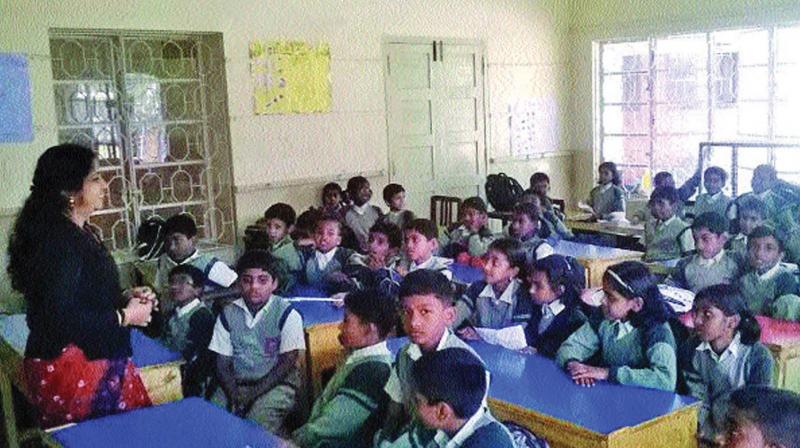Class VI to VIII in a Kerala of flux

The National Commission for Protection of Child Rights (NCPCR) found that the uniform policy of assessment was in violation of the Right to Education Act which calls for all promotion till Class VIII. DC takes a look at the pros and cons of the decision
Kochi: The Central Board of Secondary Education has decided to do away with the uniform policy of assessment from class VI to VIII following a direction in this regard from the National Commission for Protection of Child Rights (NCPCR). The NCPCR ordered this after finding that the uniform policy was in violation of the Right to Education Act which calls for all promotion till class VIII. The CBSE has also decided to do away with the uniform system of examination and report card for classes VI to VIII.
While deciding to implement the uniform policy of assessment some time ago, the CBSE had said that it was implementing it to increase the confidence of students to start preparing for Class X board examination when they join the upper primary stage in class VI.
The system of Continuous and Comprehensive Evaluation (CCE) for Class X was done away with after the central government decided to reintroduce board examination for the class from this year.
“In fact, the CBSE stream has plunged into uncertainty with this latest change. In fact, I am against introducing sudden changes in the curriculum and method of examination,” said Kerala CBSE School Management Association president T.P.M. Ibrahim Khan.
“Students and teachers should be prepared for any change so that meaningful transformation is brought about. We should not play with the future of the children. The transformation being contemplated from Continuous and Comprehensive Evaluation (CCE) was also fast. The CCE, if implemented in its true spirit, would have done wonders for education but this did not happen. Teachers too have to be equipped for that. In western countries such experiments had worked with their implementation in letter and spirit,” said Mr Ibrahim Khan.
“Now the CBSE has not made it clear whether it is going back to CCE from Class VI to VIII or not. In our context the uniform assessment and detention policies have their own advantages also. The present young generation performs only if there is compulsion and a warning always helps especially for teachers as they deal with students. The degeneration of the state school system has largely been due to the all-promotion system,” Mr Ibrahim Khan said.
Mr K.A. Francis, general secretary of the Confederation of Kerala Sahodaya Complexes representing principals of CBSE schools, said that there has to be checks and balances by the CBSE in any system introduced. “Otherwise, it will go haywire as happened in the case of CCE. It was a wonderful concept but when schools were given the freedom to implement it, different schools implemented it in different ways. Many diluted it and granted internal marks liberally and defeated its objectives. A uniform policy gives a uniform character to the curriculum and scheme of implementation. The CBSE has not yet made clear how it is going to address the issue after disbanding uniform evaluation policy. We are keenly looking forward to it,” said Mr Francis.
Fr John Erniakulathil, principal, St Philomena’s Public School and Junior College, Elanji, Ernakulam, said that giving schools freedom was better than coming out with a uniform evaluation policy. “Teachers know their wards better. But there needs to be sincerity on the part of teachers in implementing any scheme and parents also should co-operate. There would be average, above average and excellent students and teachers alone can take them as a group forward. The CCE was an excellent concept but some of the schools and teachers with their insincerity spoiled it in implementation. Any average student can be trained to pass exams. The others belong to special schools,” said Fr John.

